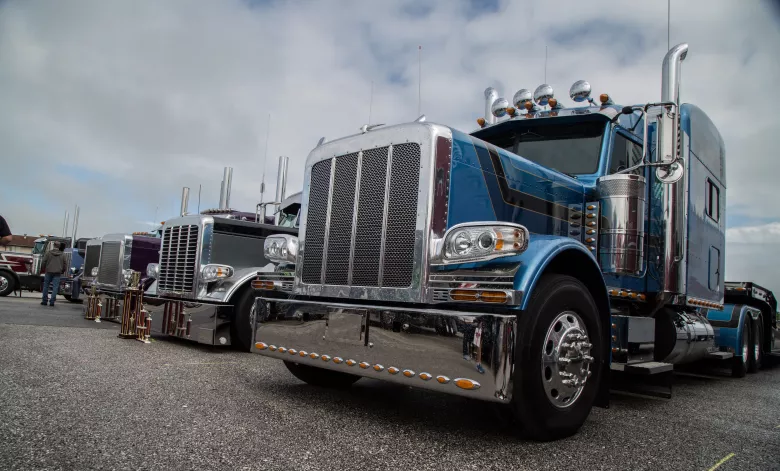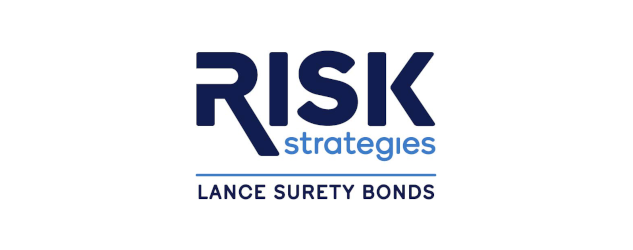How to Get a Freight Broker License in Texas

If you’re looking to get started in the freight brokerage business in Texas, then obtaining a freight broker license is mandatory and getting one should be among your priorities. However, there are a number of requirements you will need to fulfill in order to apply and maintain your license, including obtaining a surety bond and liability insurances.
But what else will you need to get a Texas freight broker license? In this article we’ll answer that question, list the steps you need to take, and answer some important FAQs so you know exactly where you stand when making your application. Read on to learn more.
Working as a Freight Broker in Texas
Successful freight brokers in Texas can expect to earn an average of $61,646 per year, meaning freight broker salaries for the state are among the highest in the country. However, the role comes with a certain amount of responsibility, as duties will include acting as an intermediary between shippers (companies or individuals who need to transport goods) and carriers (trucking companies or independent drivers who transport the goods). This means coordinating the transportation of goods, negotiating rates, and ensuring the smooth movement of shipments to keep supply chains moving across the country.
Since freight brokers are required to comply with federal regulations as they conduct their business, the department of transportation mandates that all brokers must be licensed. For this reason, it is crucial that you understand the application process, the prerequisites to applying, and how to maintain your license.
Requirements for Obtaining a Freight Broker License in Texas
In order to obtain a freight broker license in Texas, you will need to fulfill a range of licensing requirements before you apply. These include:
- Getting an OP-1 number
- Obtaining an EIN number
- Obtaining a USDOT number
- Obtaining MC number
- Getting liability and cargo insurance
- Obtaining a freight broker bond (BMC-84)
Steps to Get Your Freight Broker License in Texas
1. Understand the Requirements
Start by reading through the specific requirements set by the Texas Department of Motor Vehicles (TxDMV) and the Federal Motor Carrier Safety Administration (FMCSA). These requirements may include educational qualifications and freight broker training, background checks, and assessment of your credit score. You will also need an OP-1 application to operate across state lines.
2. Register Your Business
Before applying for a freight broker license, you must register your business entity with the appropriate state agencies in Texas and get a Certificate of Formation and an EIN number. This will involve choosing a business structure (e.g., sole proprietorship, partnership, LLC) and registering your business name with the Texas Secretary of State.
3. Obtain a USDOT and MC Number
As a freight broker, you need to obtain a USDOT number from the FMCSA. This unique identifier is necessary for interstate operations and is used to track your business activities and compliance. You can apply for a USDOT number online through the FMCSA's website. Additionally, you will need an MC (Motor Carrier) number which can also be applied for on the FMCSA website.
4. Meet the Financial Requirements
The FMCSA requires freight brokerage businesses to demonstrate sufficient financial responsibility by obtaining a freight broker surety bond or a trust fund agreement. The bond amount is $75,000. Ensure that you provide proof of this financial security when applying for your freight broker license.
Surety bond cost calculator
5. Complete the Application Process
To apply for a freight broker license in Texas, you need to submit an application to the Texas DMV. The application typically includes details about your business, ownership structure, contact information, and supporting documentation such as proof of insurance, bond/trust fund information, and any required fees.
6. Pass the Brokerage Authority Test
The Texas DMV may require you to pass a broker authority test to demonstrate your knowledge of the industry regulations, business practices, and compliance requirements. Prepare for the test by attending freight broker training courses, including the FMCSA's freight broker training on regulations and guidelines.
7. Pay the Required Fees
There are fees associated with obtaining a freight broker license in Texas. These fees can vary, so check with the Texas DMV for the current fee structure and ensure that you include the appropriate payment with your application.
8. Maintain Compliance
Once you receive your freight broker license, it's essential to maintain compliance with the regulations set forth by the Texas DMV and the FMCSA. This includes filing the necessary paperwork, renewing your license on time, and staying updated with any changes or additional requirements.
FAQ
How Much Does It Cost to Get a Freight Broker License in Texas?
The cost of obtaining a freight broker license in Texas includes various fees which will depend on the time that you apply. It’s important to check the TxDMV for the most up-to-date information. Generally, you can expect to pay fees for the application fee, a surety bond premium, and insurance premiums.
Do You Need a License to Be a Freight Broker in Texas?
Yes, you need a license to operate as a freight broker in Texas. The freight broker license is issued by the Texas Department of Motor Vehicles (TxDMV). This license is essential as it ensures that you meet the legal requirements and have the necessary knowledge and skills to operate as a freight broker in the state. It also helps establish your credibility and professionalism in the industry.
How Long Does It Take to Complete the Freight Broker License Application Process?
The time required to complete the freight broker license application process in Texas will vary depending on the complexity of your application, the availability of supporting documents, and the processing time at the DMV. It is likely to take several weeks minimum, so it’s important to factor this into your business plan.
What Happens If Your Freight Broker License Application Is Denied?
If your freight broker license application is denied, it's essential to understand the reasons for the denial. The DMV will provide you with an explanation outlining the specific grounds for the denial, with common reasons for being incomplete or incorrect application information, failure to meet the required qualifications, lack of necessary documentation, or non-compliance with regulations.
If your application is denied, you may have the opportunity to appeal the decision or reapply after addressing the identified issues. It's crucial to carefully review the denial notice and follow the instructions provided by the TxDMV to determine the appropriate course of action.
How Long Is the Freight Broker License Valid?
Typically, a freight broker license is valid for a year, and you will need to renew before the expiry date passes in order for your business to continue operating legally. Additionally, you will also need to check the freight broker bond renewal process to ensure your bond is valid before you apply for license renewal.
Get a FREE Surety Bond Quote in Minutes
- Fast and Secure Application
- Money Back Guarantee
- Approval in Minutes
- Nationwide Coverage
Recommended Articles
- Fast and Secure Application
- Nationwide Coverage
- Approval in Minutes
- Money Back Guarantee
- Image

- Image

- Image

Lance Surety Bond Associates, Inc. is a surety bond agency based out of southeastern Pennsylvania that is able to write all surety bond types in all 50 states. We are dedicated to servicing all of our customers' surety bonding needs throughout the country and guarantee competitive rates, timely responses, and unparalleled customer service.








